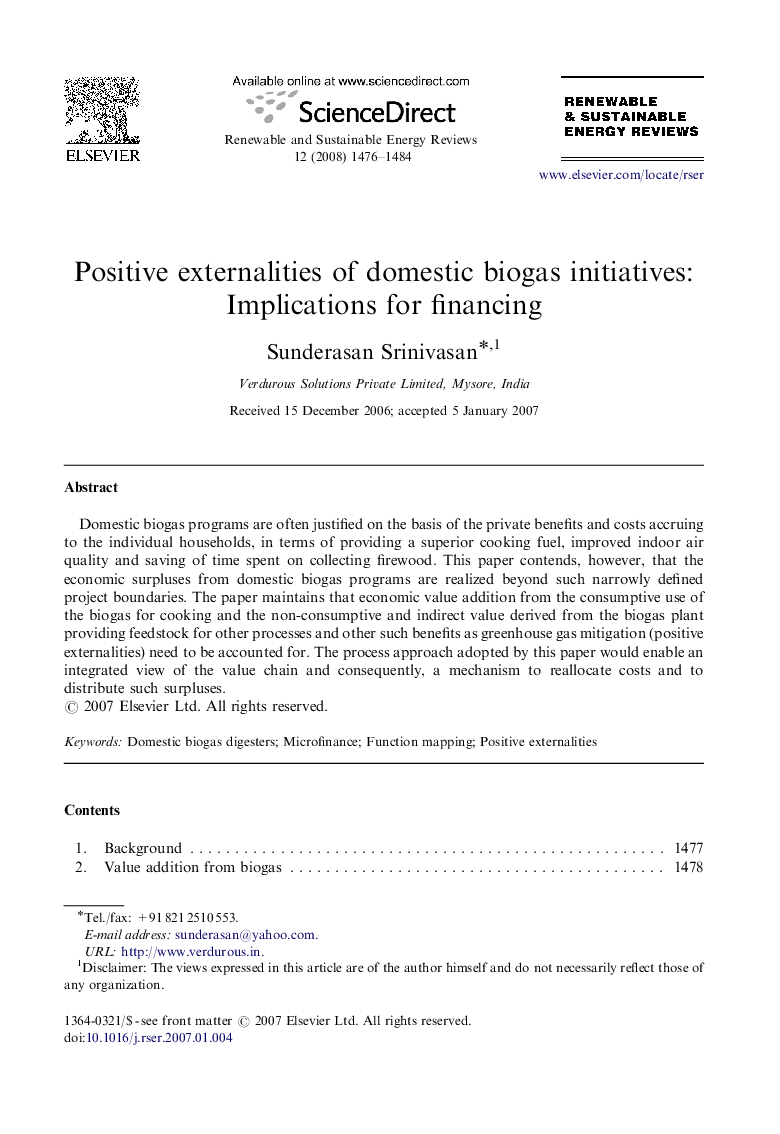| Article ID | Journal | Published Year | Pages | File Type |
|---|---|---|---|---|
| 1752444 | Renewable and Sustainable Energy Reviews | 2008 | 9 Pages |
Domestic biogas programs are often justified on the basis of the private benefits and costs accruing to the individual households, in terms of providing a superior cooking fuel, improved indoor air quality and saving of time spent on collecting firewood. This paper contends, however, that the economic surpluses from domestic biogas programs are realized beyond such narrowly defined project boundaries. The paper maintains that economic value addition from the consumptive use of the biogas for cooking and the non-consumptive and indirect value derived from the biogas plant providing feedstock for other processes and other such benefits as greenhouse gas mitigation (positive externalities) need to be accounted for. The process approach adopted by this paper would enable an integrated view of the value chain and consequently, a mechanism to reallocate costs and to distribute such surpluses.
